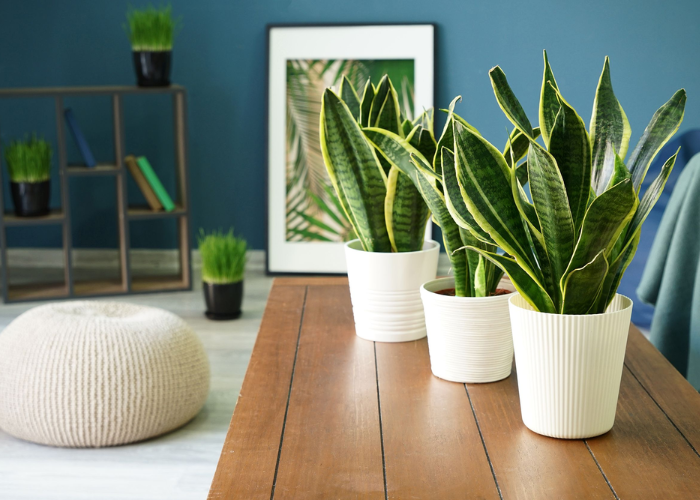Houseplants have long been a popular way to bring a bit of nature indoors. Not only can they add color and texture to a room, but they can also help purify the air and reduce stress. But with so many plants to choose from, which are the best for cleaner air and a calm mind? We’ll discuss the types of air-purifying plants, their benefits, and tips for choosing and caring for them.
Why We Need Air-Purifying Plants
Indoor air pollution is a real problem, and it’s a problem that can be mitigated with the help of houseplants. The Environmental Protection Agency (EPA) estimates that indoor air can be two to five times more polluted than outdoor air. This is because homes and buildings are usually well-insulated, which means that toxins and pollutants can get trapped inside.
Houseplants help to reduce the levels of these pollutants in the air by absorbing them through their leaves and roots. Studies have shown that certain plants can reduce levels of volatile organic compounds (VOCs), such as formaldehyde, benzene, and trichloroethylene that are released from furniture, carpets, paint, cleaning products, and other products.
Types of Air-Purifying Plants
There are many types of houseplants that can help reduce indoor air pollution and make the air cleaner and healthier. Some of the most popular air-purifying plants are:
- Spider plants: Spider plants are easy to care for and can absorb pollutants like formaldehyde and carbon monoxide. They’re also known to be good at filtering out mold spores.
- English ivy: English ivy is a trailing plant that can be trained to climb up walls or along shelves. It can absorb benzene, formaldehyde, and other toxins.
- Peace lily: Peace lilies are known for their ability to reduce levels of VOCs, including formaldehyde and benzene. They’re also beautiful and easy to care for.
- Bamboo palm: Bamboo palms are a type of palm tree that can grow up to 10 feet tall. They’re effective at removing formaldehyde, xylene, and toluene from the air.
- Dracaena: Dracaenas come in a variety of shapes and sizes and can be used to fill empty corners. They’re known for removing formaldehyde and xylene from the air.
The Benefits of Having Indoor Plants
In addition to improving indoor air quality, there are other benefits to having houseplants in your home. Studies have shown that having plants indoors can help reduce stress, improve concentration, and boost your mood.
Research has also shown that plants can help reduce feelings of fatigue and improve sleep quality. Lastly, plants can help to create a more inviting and calming atmosphere, making your home a more enjoyable place to be.
Tips for Choosing the Right Plants
When choosing plants for your home, there are a few things to consider. First, think about the amount of light in the space. Some plants require full sun, while others can tolerate lower levels of light.
Next, consider the size of the space. If you have a small room, you may want to opt for smaller plants or trailing plants that can be placed on shelves or hung from the ceiling.
Lastly, make sure to choose plants that are easy to care for. If you’re not an experienced gardener, opt for plants that don’t require a lot of maintenance.
How to Care for Your Indoor Plants
Caring for your indoor plants is essential to keeping them healthy and thriving. Here are a few tips for caring for your plants:
- Make sure to water them regularly. Most plants need to be watered once a week, but some need more or less depending on the type of plant and the conditions in your home.
- Provide adequate sunlight. Plants need sunlight to grow, so make sure to place them in a spot that gets plenty of light.
- Fertilize regularly. Many plants require fertilizer to stay healthy. Make sure to use a fertilizer that’s specifically formulated for the type of plant you have.
- Prune and trim regularly. This will help to keep the plant healthy and looking its best.
Conclusion
Houseplants are a great way to add color and texture to your home, as well as to improve air quality and reduce stress. By choosing the right plants, providing adequate care, and following the tips in this article, you can enjoy cleaner air and a calmer mind in your home.






